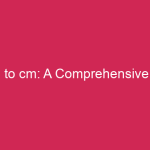The blood pressure reading of 180/108 signifies an elevated blood pressure, falling under the stage 2 hypertension category. Hypertension, commonly known as high blood pressure, is a significant risk factor for numerous health complications, including heart attack, stroke, and kidney disease. Understanding the implications of 180/108 blood pressure is crucial for managing and preventing these adverse outcomes.
Individuals with 180/108 blood pressure are at increased risk of heart disease due to the strain it puts on the heart and blood vessels. The high pressure forces the heart to work harder to pump blood, leading to thickening and stiffening of the arteries. As a result, the heart may become less efficient and develop heart failure. Additionally, high blood pressure damages the inner lining of blood vessels, increasing the likelihood of blood clots and blockages that can cause a heart attack or stroke.
Another major concern associated with 180/108 blood pressure is the potential for kidney damage. The kidneys are responsible for filtering waste products from the blood, and high blood pressure can strain the kidney’s delicate structures. Over time, this can lead to reduced kidney function and even kidney failure. Individuals with uncontrolled high blood pressure are at a greater risk of developing end-stage renal disease, which requires dialysis or a kidney transplant.
Risk Factors and Lifestyle Modifications
Risk Factors for 180/108 Blood Pressure
- Obesity
- Excessive sodium intake
- Lack of physical activity
- Excessive alcohol consumption
- Family history of hypertension
Lifestyle Modifications for Managing 180/108 Blood Pressure
- Maintain a healthy weight
- Reduce sodium intake to less than 2,300 mg per day
- Engage in regular physical activity
- Limit alcohol consumption
- Manage stress through techniques such as yoga, meditation, or spending time in nature
Medications and Treatment Options
Medications for Treating 180/108 Blood Pressure
- ACE inhibitors (e.g., lisinopril, ramipril)
- Angiotensin II receptor blockers (e.g., losartan, valsartan)
- Beta-blockers (e.g., metoprolol, atenolol)
- Calcium channel blockers (e.g., amlodipine, diltiazem)
- Diuretics (e.g., hydrochlorothiazide, furosemide)
Treatment Options for 180/108 Blood Pressure
- Lifestyle modifications (as discussed above)
- Medications (as discussed above)
- Renal artery angioplasty or stenting for severe hypertension caused by renal artery stenosis
- Surgery for resistant hypertension
Long-Term Effects and Complications
Uncontrolled 180/108 blood pressure can lead to severe and life-threatening complications:
- Heart attack
- Stroke
- Heart failure
- Kidney disease
- Eye damage
- Dementia
Monitoring and Management
Monitoring Blood Pressure
- Regular blood pressure monitoring is crucial for managing 180/108 blood pressure.
- Use a home blood pressure monitor for daily tracking.
- Record your readings and consult with your doctor.
Managing Blood Pressure
- Adhere to your prescribed medications
- Make lifestyle changes as recommended by your doctor
- Attend regular follow-up appointments with your doctor
- Monitor your blood pressure regularly and report any changes to your doctor
Importance of Seeking Professional Help
It is essential to seek professional medical advice when your blood pressure reaches 180/108. Your doctor can:
- Confirm the diagnosis of hypertension
- Identify any underlying causes
- Recommend appropriate treatment options
- Monitor your progress and make necessary adjustments
Conclusion
180/108 blood pressure is a serious condition that requires prompt attention. Understanding the risks and complications associated with this elevated blood pressure is crucial for proactive management. By making lifestyle modifications, adhering to medication regimens, and seeking professional help, individuals can effectively lower their blood pressure and reduce their risk of developing severe health problems.















Leave a Comment